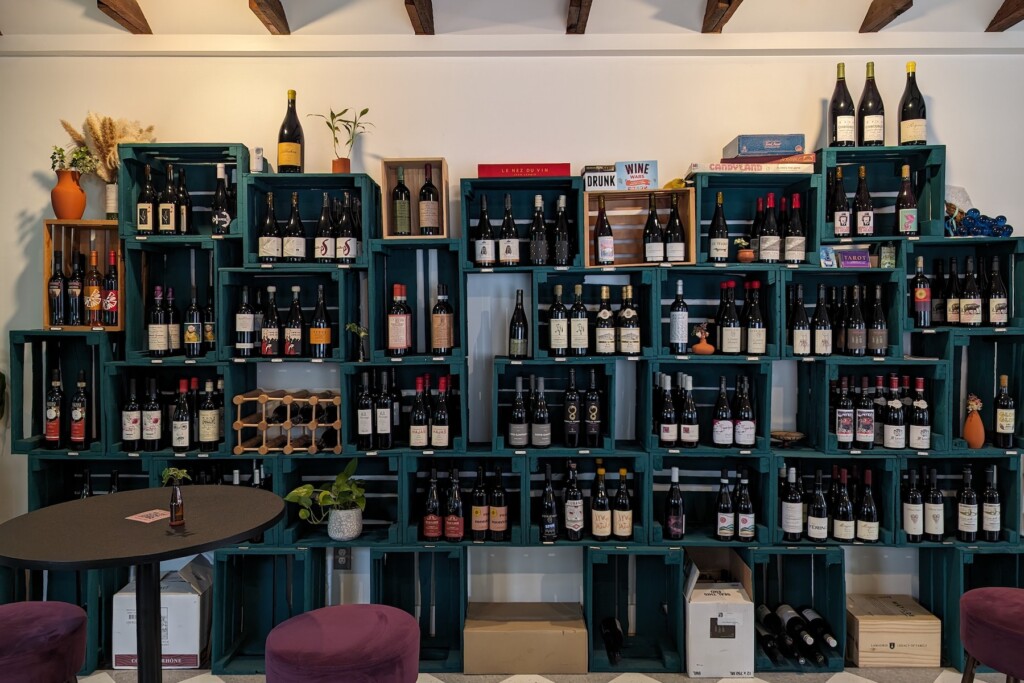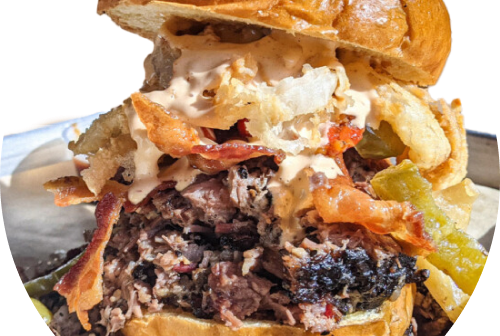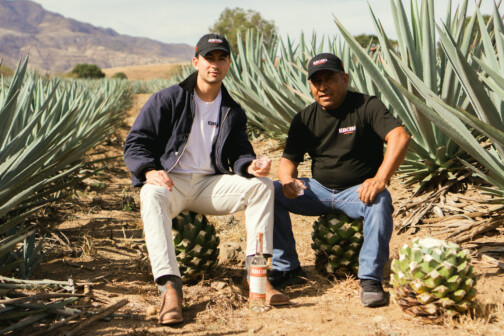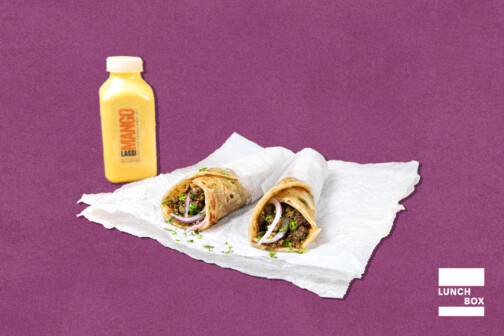The first thing that most people see is the window. Sorry, that’s not how it’s spelled. The first thing that most people see is the wine-dow.
From across Eighth Street, in the heart of the Bishop Arts District, walkers and shoppers see the neon sign advertising the “Wine-Dow.” It’s discreet—not a sign you take selfies with—and it gets taken down in cold weather. But the neon is promising enough to lure you after you’ve picked up some Dude, Sweet Chocolate or a burger from Hunky’s. Scan the QR code on the side of the building, and in a moment the window will open and somebody will be handing you a glass to sip on the patio.
Normally, we might be a little bit concerned about the quality of a glass of wine that comes handed through a window on the side of a 1945-built old house. But this is Ampelos Wines, a shop and wine bar with some of the best glasses in town. Ampelos has a terrific retail selection to take home—I can’t resist temptations when I walk in—and it’s also a relaxing spot to sip on a glass.
The shop keeps to a strict, straightforward philosophy: natural wines made by small businesses. Ampelos is part of a growing natural wine movement in Dallas that has put these more characterful, bright bottles on display at restaurants like Fond, Oddfellows, Petra and the Beast, Sachet, and Via Triozzi.
“The philosophy is truly mindful winemaking,” says Genevieve Weaver, who co-owns Ampelos with her partner, Jessica Martinez. (Weaver is likely to be the person passing your glass through the window.) “The producers are majority family-owned, very small. Most things are going to be manually harvested. And there’s great emphasis on quality over quantity. There’s also a great emphasis on providing livable wages to anybody working for them.”
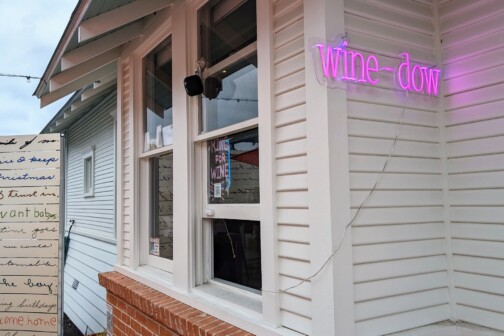
Those standards also apply to the liquid in the glass. “No manipulation,” Weaver says. “Our definition is pretty strict. We don’t allow the additives that most winemakers do use—no commercial yeasts, we do native yeasts. Minimal additions of sulfites.”
Many wine drinkers still don’t know that a lot of commercial, mass-produced wine is full of additives beyond grape juice. When I visited Teutonic Wines in Oregon, the owner showed me an entire sales catalog of additives, preservatives, coloring agents, pesticides, and other chemical mystery stuff frequently sold to wineries. (Teutonic doesn’t use any.) One of the most notorious additives is Mega Purple, an extremely purple, but also extremely sugary, wine concentrate that big brands add to create a deeper, lusher purple color. The side effect is dessert-like sweetness—enough sugar to give many red wine drinkers a headache.
Natural wine is about returning wine to the values many people don’t know the industry abandoned: letting grapes taste like themselves and accepting a broader diversity of tastes, textures, and colors. It can be intimidating to re-learn what you know about wine, but it is also delicious—and easy. That’s where experts like Weaver and Martinez come in.
They tend Ampelos with a friendly touch, quick to offer recommendations and ideas based on what you like and don’t. They vet the wineries through diligent research or purchase from distributors who do the research. They’ve also intuitively organized Ampelos’ shelves, from the lightest summer delights at the front of the store to bigger, bolder reds at the back. These, by the way, won’t be as big or bold as the reds at Kroger, because of additives like Mega Purple that artificially beef up industrial wine. “When we pull out our big reds for people, if their palate is used to [grocery brands], then they’re not going to taste that,” Weaver says. “We do have a few that are really big. Most of them are going to be a higher price point.”
But the whole point of this selection is to share exciting goodies from outside the norm. Ampelos is where you find your next favorite bottle of wine, not your latest one. “We want to be able to share this stuff, because there’s so much more out there,” Weaver says.
Weaver and Martinez met just around the corner, at a wine event in The Wild Detectives. Martinez helped curate the drinks, and Weaver was working for the organizers. “We were polishing wine glasses next to each other when we met,” Weaver says. “Five years later, this happened.” Martinez isn’t always in the shop, because she’s busy with another gig—assistant winemaker at the urban winery Love & Squalor in Portland, Oregon. (Love & Squalor is sold at Ampelos.)
About that name, by the way: Ampelos was the first love of Dionysus, the Greek god of wine. The two were lovers so early on in Greek myth that the story goes that when Ampelos died, Dionysus turned his body into the first grapevine, and his blood into the first wine. Thus the Greeks tied the story of wine into a story of love. You don’t need to be an ancient Greek god to appreciate that part of the Ampelos story, of course. But it does sum up the ethos of this Bishop Arts shop, one that’s built on love for good wine, love for sharing it with others, and love for finding a new bottle to drink. Plus, of course, the Wine-Dow.
Ampelos Wines, 411 W. Eighth St.
Author



